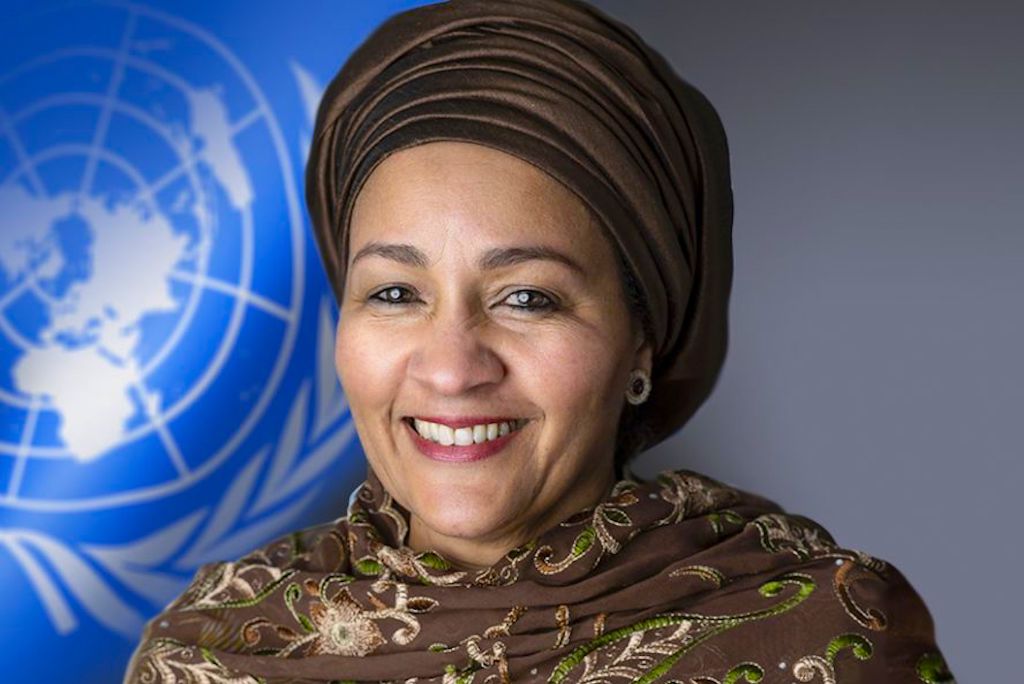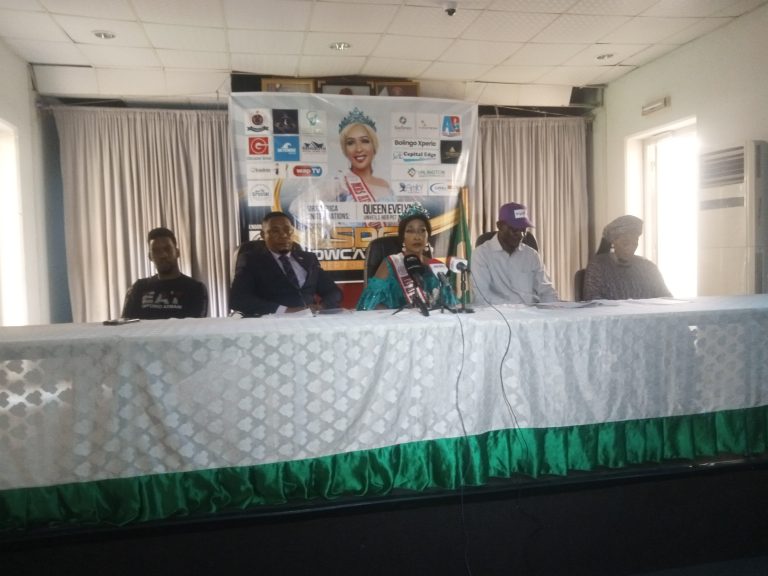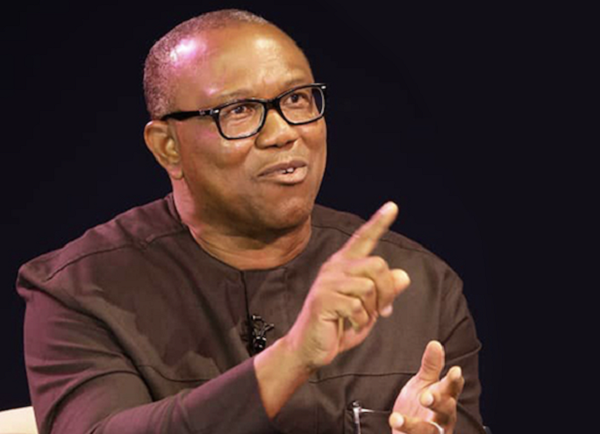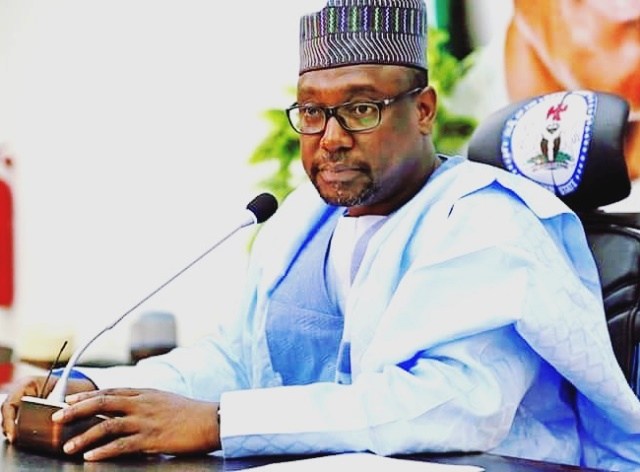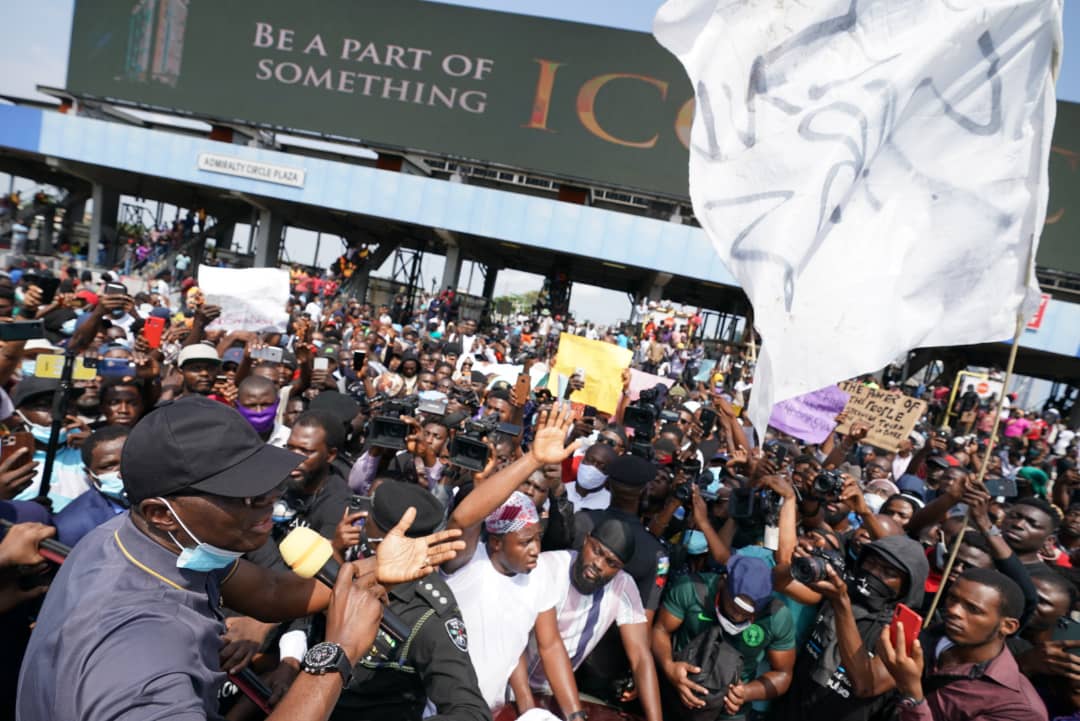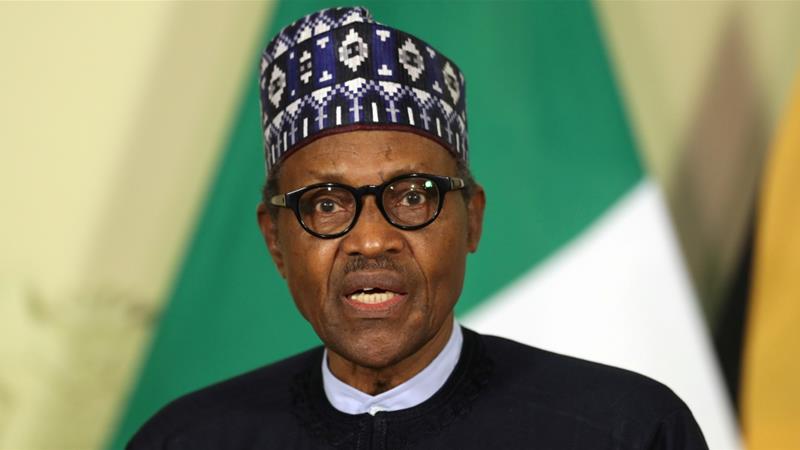…says it would be foolhardy for anyone to sugarcoat our current morass
Presidential candidate of Labour Party, Mr Peter Obi has said Nigeria’s greatest challenge is lack of elite consensus.
TheNewsGuru com, (TNG) reports Obi disclosed this at the Labour Party – Coalition for Peter Obi (CPO) Summit in Abuja on Thursday.
Obi said:”Great nations are built through political alliances. Our founding fathers understood and forged alliances in the national interest.
“But things changed. Our leaders became selfish, myopic ad corrupt. And our people suffered. That narrative and mindset must change.
“Youth, Governance and A New Nigeria
The new alliance we seek is between Nigerian Youths, the Labour Party, which represent Nigerian workers, and Like Minds. Collectively, it is an alliance of the OBIdients!
“Nigeria is at crossroads and it would be foolhardy for anyone to sugarcoat our current morass. Ravaging insecurity, largely inflicted by non-state actors, is fast threatening the sovereignty of Nigeria.
“Nigeria is today vastly polarized and wracked by deep divisions along religious, ethnic and regional lines. There is a staggering level of corruption. Our universities have remained closed for over five months. While our healthcare system remains comatose, power generation and distribution are also at all-time low.
“I have consistently maintained that while there is a need for the sustenance of the hard approach to fighting insecurity, there is urgent need to tackle poverty and those social and economic malaise that exacerbate the crises. We cannot have 33% unemployment rate, 18.5 million out of school children and 100 million poor people, in Nigeria and expect to go to sleep with our two eyes closed.
“The money Nigeria is sharing from oil earning is finished! We now spend more today to service debts than we earn from oil! Nigeria now spends more to pay for subsidy on imported refined products than she earns from crude sales! Going forward, we must look for ways to move Nigeria beyond oil. We must end the criminality that is called oil subsidy.
“But we must do the first things first. It is only auspicious that the reset button is urgently applied now, and that is why the OBIdient Movement is an idea whose time has come! We must find ways to change the political trajectory in Nigeria in 2023.
“There is a common link that will tie or separate Nigerian youths, good governance and a New Nigeria. It is the forthcoming 2023 elections. In essence, democracy has always been about periodic and genuine elections. Besides the periodicity, the pertinent qualifiers include certifiable credibility, transparency, and respect for the choice of the voting populace. In 2023, we must ensure that the choice of Nigerians is respected.
“After we win the 2023 elections, we intend to use the instruments of job creation and regenerative investments to reduce drastically the high incidence of insecurity and poverty, while moving the economy from the consumptive to the productive mode. We seek to build a new the Nigeria where transparency, due process, rule of law, and prudent management of resources will be the norms.
“As I have always said, our vision and mission is to give full expression to our democracy by moving our country from consumption to production; we shall achieve by giving primacy to implementing the 17 Sustainable Development Goals (SDGs).
“Our national challenges are daunting, but our determination is assuredly unwavering. Sadly, amidst the above overwhelming situations, our current political class keeps punching the air. Indeed, the greatest challenge we face beyond bad leadership, is lack of elite consensus.
“But let us not forget Dante Alighieri‘s admonition, that “The hottest places in hell are reserved for those who, in times of great moral crisis, maintain their neutrality.”
“History must serve as a tool in our decision making. The implosion of Nigeria has long been forecasted. Year 2023 could be a tipping point in the annals of our history. But that must not happen, even as the options before the electorate seem stark.
“I want to assure you that as a people-oriented party and Movement, the people remain the fulcrum of our collective quest to take back Nigeria; the people are our STRUCTURE. I therefore urge you not to yield to the deceptive narrative of lack of Structure in the Movement. You all seated here are the Structures we seek.
“The current structures of both the PDP and the APC are the stomach infrastructure that has brought us nothing but misery. Their understanding of structure is sharing of Nigeria’s patrimony to vested interests and influence peddlers. That is against what Peter Obi represents; that is against what Yusuf Datti Baba-Ahmed represents; and it is indeed, against the vision of the Labour Party.
“On a final note, I urge you to always endeavour to remind the opposition that Nigeria’s democracy must survive because of our structure -that critical mass that has been dehumanized and disenfranchised by the ruling oligarchs; the 100 million poor Nigerians who will come out on election day to fight for their future; the 33% unemployed Nigerians who already know who kept them unemployed; our structure is indeed the parents of 18.5m out-of-school-children in Nigeria, who will strive to ensure that such affliction does not visit them a second time. And finally, our structure is everyone seated in this hall today! Yes, we have Structure. And we are ready to move mountains to save Nigeria.
See full address below:
Nigeria’s Democracy Must Survive
Address by Mr. Peter Obi, Presidential Candidate of the Labour Party
At the Labour Party – Coalition for Peter Obi (CPO) Summit
At the International Conference Centre, Abuja, FCT
At 9:00 a.m., 11th August, 2022.
It gives me great joy to attend this family gathering. This is a gathering of Labour Party Leaders, Stakeholders Candidates and a gathering of members of the Coalition for Peter Obi (CPO). More importantly, this is a gathering of the OBIdients.
This meeting is long overdue. I’m glad that finally we gathered under one roof to discuss our democracy; This Summit is the Mother of all Summits in the struggle to save Nigeria. From where I stand, I dare to proclaim that Nigeria’s Democracy Must Survive! That is our task. That is our Mission.
Someone wise once said that “Democracy is hard work. We must therefore work hard on it.” We understand that, and that is why the people gathered here, Nigerian Youths and some of us elders, have vowed to take back Nigeria.
Let me thank all those gathered here for becoming part of the struggle to rescue or country, and make her a Secure, United and Productive Nigeria. Today, our theme and focus is on Youth, Governance and A New Nigeria.
I thank the Coalition for Peter Obi (CPO) and the entire OBIdient Family who have been toiling ad sacrificing to ensure the success of our collective project. The Nigerian political space has unprecedentedly been lit up by your selfless works and sacrifices. My assurance to you all is that “you shall not labour in vain”.
Since I entered the presidential race my mantra has been consistent and in tandem with the Labour Party’s vision, which mainly seeks to ensure economic transformation through job-led growth. Therefore, my decision to join the Labour Party was not by coincidence or happenstance; it was indeed a thought-through decision given the ideological convergence.
Great nations are built through political alliances. Our founding fathers understood and forged alliances in the national interest. But things changed. Our leaders became selfish, myopic ad corrupt. And our people suffered. That narrative and mindset must change.
Youth, Governance and A New Nigeria
The new alliance we seek is between Nigerian Youths, the Labour Party, which represent Nigerian workers, and Like Minds. Collectively, it is an alliance of the OBIdients!
Nigeria is at crossroads and it would be foolhardy for anyone to sugarcoat our current morass. Ravaging insecurity, largely inflicted by non-state actors, is fast threatening the sovereignty of Nigeria.
Nigeria is today vastly polarized and wracked by deep divisions along religious, ethnic and regional lines. There is a staggering level of corruption. Our universities have remained closed for over five months. While our healthcare system remains comatose, power generation and distribution are also at all-time low.
I have consistently maintained that while there is a need for the sustenance of the hard approach to fighting insecurity, there is urgent need to tackle poverty and those social and economic malaise that exacerbate the crises. We cannot have 33% unemployment rate, 18.5 million out of school children and 100 million poor people, in Nigeria and expect to go to sleep with our two eyes closed.
The money Nigeria is sharing from oil earning is finished! We now spend more today to service debts than we earn from oil! Nigeria now spends more to pay for subsidy on imported refined products than she earns from crude sales! Going forward, we must look for ways to move Nigeria beyond oil. We must end the criminality that is called oil subsidy.
But we must do the first things first. It is only auspicious that the reset button is urgently applied now, and that is why the OBIdient Movement is an idea whose time has come! We must find ways to change the political trajectory in Nigeria in 2023.
There is a common link that will tie or separate Nigerian youths, good governance and a New Nigeria. It is the forthcoming 2023 elections. In essence, democracy has always been about periodic and genuine elections. Besides the periodicity, the pertinent qualifiers include certifiable credibility, transparency, and respect for the choice of the voting populace. In 2023, we must ensure that the choice of Nigerians is respected.
After we win the 2023 elections, we intend to use the instruments of job creation and regenerative investments to reduce drastically the high incidence of insecurity and poverty, while moving the economy from the consumptive to the productive mode. We seek to build a new the Nigeria where transparency, due process, rule of law, and prudent management of resources will be the norms.
As I have always said, our vision and mission is to give full expression to our democracy by moving our country from consumption to production; we shall achieve by giving primacy to implementing the 17 Sustainable Development Goals (SDGs).
Our national challenges are daunting, but our determination is assuredly unwavering. Sadly, amidst the above overwhelming situations, our current political class keeps punching the air. Indeed, the greatest challenge we face beyond bad leadership, is lack of elite consensus. But let us not forget Dante Alighieri‘s admonition, that “The hottest places in hell are reserved for those who, in times of great moral crisis, maintain their neutrality.”
Conclusion:
History must serve as a tool in our decision making. The implosion of Nigeria has long been forecasted. Year 2023 could be a tipping point in the annals of our history. But that must not happen, even as the options before the electorate seem stark.
I want to assure you that as a people-oriented party and Movement, the people remain the fulcrum of our collective quest to take back Nigeria; the people are our STRUCTURE. I therefore urge you not to yield to the deceptive narrative of lack of Structure in the Movement. You all seated here are the Structures we seek.
The current structures of both the PDP and the APC are the stomach infrastructure that has brought us nothing but misery. Their understanding of structure is sharing of Nigeria’s patrimony to vested interests and influence peddlers. That is against what Peter Obi represents; that is against what Yusuf Datti Baba-Ahmed represents; and it is indeed, against the vision of the Labour Party.
On a final note, I urge you to always endeavour to remind the opposition that Nigeria’s democracy must survive because of our structure -that critical mass that has been dehumanized and disenfranchised by the ruling oligarchs; the 100 million poor Nigerians who will come out on election day to fight for their future; the 33% unemployed Nigerians who already know who kept them unemployed; our structure is indeed the parents of 18.5m out-of-school-children in Nigeria, who will strive to ensure that such affliction does not visit them a second time. And finally, our structure is everyone seated in this hall today! Yes, we have Structure. And we are ready to move mountains to save Nigeria.
Thank you and God bless you.


